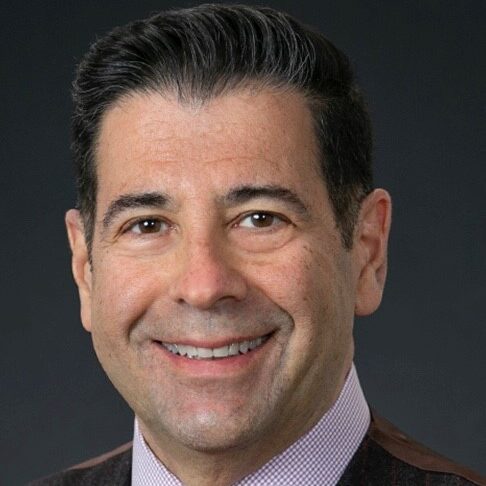
The Personal Financial Specialist (PFS) is a designation for licensed Certified Public Accountants (CPAs) who wish to provide financial planning services to their clients. Designed by the American Institute of Certified Public Accountants (AICPA), the PFS allows CPAs to go beyond their traditional duties and help others plan for their futures.
Let’s take a closer look at what this financial certification is, what it takes to earn it, and how you may benefit from working with a PFS.
What is a Personal Financial Specialist (CPA / PFS)?
Essentially, a Personal Financial Specialist (PFS) is a Certified Public Accountant (CPA) with training and work experience in the financial planning industry. They have the expertise it takes to help clients holistically with a number of financial matters including retirement, investments, risk management, estate planning, and taxes.
Once they complete all of the education, experience, and exam requirements necessary to earn the designation, PFS candidates are well-versed in the twelve areas that comprise the PFS Body of Knowledge:
- Personal Financial Planning Process
- Professional Responsibilities and Legislative and Regulatory Environment
- Fundamental Financial Planning Concepts
- Estate Planning
- Charitable Planning
- Risk Management Planning
- Employee and Business-Owner Planning
- Investment Planning
- Retirement and Financial Independence Planning
- Elder, Special Needs, and Chronic Illness Planning
- Education Planning
- Special Situations
They help clients see “the big picture” along with the tax implications of all of their financial decisions. This allows them to ensure that all of their bases are covered. Many PFS holders are found on lists of top financial planners due to the rigorous requirements they must meet.
Find a Personal Financial Specialist on Wealthtender
📍 Click on a pin in the map view below for a preview of Personal Financial Specialists who can help you reach your money goals with a personalized plan. Or choose the grid view to search our directory of PFS advisors with additional filtering options.
📍Double-click or pinch pins to view more.
Should You Hire a Personal Financial Specialist (PFS)?
A PFS has the advanced tax expertise and depth of financial knowledge that may help you if you:
- Want to Understand the Tax Implications of Your Personal Financial Plans: The reality is that retirement, investments, insurance, estate, and virtually all areas of personal financial planning come with tax implications. A PFS has the unique combination of extensive tax expertise and comprehensive financial planning you need to understand the tax implications of your financial plans and receive the most comprehensive advice possible.
- Would Like to Take a Comprehensive Approach to Estate Planning: Estate planning can be difficult and nerve-racking, to say the very least. A PFS may review your wills, trusts, retirement plans, and other estate documents to ensure they’re in good shape and up-to-date. They can also collaborate with you to design a strategy that meets your goals while preserving the assets you’ve worked so hard to attain. With their guidance, you may reduce your tax liability and ensure your wishes are honored when the time comes.
- Need Retirement Planning Support: A PFS may help you figure out the primary sources of income you should have to retire at your preferred age with the lifestyle you desire. Then, they can create strategies on your behalf so you can grow your retirement accounts and save on taxes in the process.
- Wish to Plan for Education Expenses: If you have children who you hope to send to private school or college, a PFS is invaluable. You can trust them to design an investment strategy with your children’s ages and projected education costs in mind. They can also keep your education savings plan updated to accommodate changes in tax laws, financial aid requirements as well as your employment, and investment options.
What Does it Take to Earn and Maintain the Personal Financial Specialist Designation?
Those who hope to earn a PFS designation must fulfill certain requirements set forth by the American Institute of Certified Public Accountants. Here’s a brief overview of what they are:
CPA License
The PFS designation is only available to licensed CPAs. These CPAs must be current members of the American Institute of Certified Public Accountants (AICPA) in good standing.
PFS Education Requirements
To become a PFS, candidates are required to complete a minimum of 75 hours of financial planning education in the Body of Knowledge categories. They can do so up to five years before they apply for the designation. (Alternatively, an Experienced pathway is available to candidates who earn a minimum of 105 hours of personal financial planning education within the 7 years prior to the PFS application.)
There are a number of ways PFS candidates can satisfy this education requirement. They can enroll in professional development opportunities and complete five financial planning certificate programs administered by the AICPA.
PFS Experience Requirements
PFS candidates must have at least 3,000 hours of work experience or teaching in personal financial planning under their belt. This experience needs to be in one or more of the twelve Body of Knowledge categories. (Alternatively, an Experienced pathway is available to candidates who have 5 years of full-time work experience or 7,500 hours equivalent in personal financial planning.)
PFS Exam
The PFS exam is comprised of 160 multiple-choice questions. Approximately half of them are based on case studies. These case studies are intended to test candidates’ analytical reasoning and ability to apply financial planning theory comprehensively.
PFS candidates may take the PFS exam during one of two annual exam times online or in person at a testing center. It usually lasts about five hours with one 30-minute break. PFS candidates may also satisfy the exam requirement by earning the CFP or ChFC designation.
PFS Code of Ethics
CPAs with the PFS designation are required to adhere to the AICPA code of conduct. At its core, the code of conduct states that they’ll act with objectivity and integrity. They’ll also maintain client confidentiality and reveal any conflicts of interest.
FAQs
How can I confirm the financial professional I’m working with holds the Personal Financial Specialist designation?
Contact the AICPA, the issuing organization of this credential, at (888) 777-7077.
What if I have a complaint about the Personal Financial Specialist I’m working with?
Contact the AICPA at (888) 777-7077 or send a letter of complaint to:
AICPA
220 Leigh Farm Road
Durham, NC 27707
Attn: Professional Ethics Division
Where can I learn more about other professional designations held by financial advisors and coaches?
Refer to this list of popular financial certifications prepared by Wealthtender to help you learn more about each designation. You’ll find a brief description of each certification, plus links to in-depth articles if you want to learn more about a particular designation.
About the Author

About the Author
Brian Thorp
Brian is CEO and founder of Wealthtender and Editor-in-Chief. He and his wife live in Austin, Texas. With over 25 years in the financial services industry, Brian is applying his experience and passion at Wealthtender to help more people enjoy life with less money stress. Learn More about Brian






























